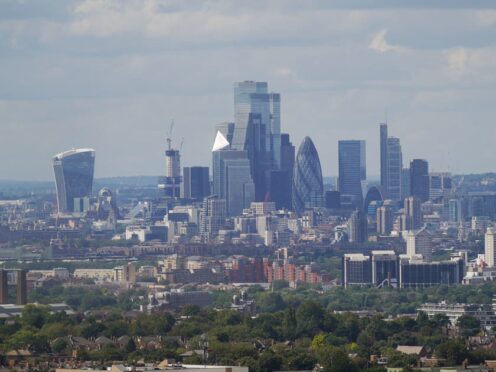
Some of the world’s largest insurers are failing to protect “both people and planet” by continuing to back projects which could be worsening climate change, an investigation has revealed.
The insurance industry is contributing to global issues through its underwriting and investment activity, according to analysis by responsible investment charity, ShareAction.
This is helping drive a “triple whammy” of global warming, damage of the natural environment and the failure to protect human rights.
The damning report looked into 65 of the world’s largest insurance companies, across life and health, property and casualty, and Lloyd’s of London.
It found that just two of the insurers investigated have committed to rule out underwriting four of the world’s most controversial fossil fuel projects.
That includes an Australian coal mining operation which is a major carbon dioxide polluter, as well as the Rosebank oil field in the North Sea.
More than 80% of the insurers failed to place restrictions on underwriting for companies on the basis of human rights, worker health, conventional weapons or indigenous rights.
And 30% of the insurers assessed scored zero for policies that would protect the natural environment and biodiversity.
It also showed that the UK’s flagship Lloyd’s of London marketplace was one of the worst performers in terms of environmental and social policies.
The company and its biggest managing agents, who manage business units known as syndicates, were included in ShareAction’s analysis.

Lloyd’s makes up 9% of the world’s fossil fuel underwriting business, but it received the lowest grade for its policies, which ShareAction said paints an “extremely poor picture of one of the most significant entities in the world of insurance”.
Meanwhile, Axa Group was one of just two businesses to receive more than half of the available points in the charity’s survey, meaning it was one of the strongest performers.
UK-based Aviva was also rated highly compared with other insurers in the property and casualty group, although it still only scored 45% in the survey.
Tnh businesses were ranked based on a number of indicators of their approach to climate change, biodiversity and social issues.
Claudia Gray, the head of financial sector research at ShareAction, said: “This report reveals the insurance sector’s abject failure to live up to its responsibilities to protect both people and planet.
“They have a both a moral duty and business opportunity to adopt responsible investments and underwriting activities.”
Insurers invest the premiums they collect from individuals and businesses who take out an insurance policy, which can mean money goes to companies and projects with negative social or environmental impacts.
Jonathan Middleton, senior researcher at ShareAction, said: “What these rankings show is just how long a journey the insurance industry has to go on to meet net-zero targets, protect nature and meet their obligations to safeguard human rights.
“It is vital that they begin that journey immediately to ensure a sustainable future for both people and planet as well as for the sake of their own long-term viability.”
ShareAction said it will start meeting with some of the insurers it investigated to discuss the findings and how standards can improve.

Enjoy the convenience of having The Sunday Post delivered as a digital ePaper straight to your smartphone, tablet or computer.
Subscribe for only £5.49 a month and enjoy all the benefits of the printed paper as a digital replica.
Subscribe